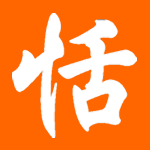to: tiangotlost@gmail.com
date: Sun, Aug 15, 2010 at 1:43 PM
subject: My tattoo artist is talented but doesn't listen
So...I was told this was the symbol for 'chi' - a giggling oriental girl told me it means 'rice' (which I actually find hilarious.) Any other meaning????
米 by itself alone means "rice".


And "chi" (I assume he means chi energy) would be 気,氣 or 气, depending on the part of East Asia you are in, but I'd say the image was Japanese, what with the sakura and koi, so 気.
ReplyDeleteWouldn't it be weird to tattoo yourself with just "气", since by itself it means "air"?
ReplyDelete@Herouth
ReplyDeleteExcept that the character is red "ki" in Japanese, not "chi".
The character 米 means "rice", but in Japanese is also sometimes used as an abbreviation for the USA, in which case it's pronounced "bei" (from 米国, beikoku).
ReplyDelete米 has several other readings in Japanese, but "chi" isn't one of them (most common are "kome", "bei" and "mai").
@Yokohama'bama: 気 is pronounced ki, ge, gi or ke in Japanese. Now, Chinese is not my domain, but as far as I know, its equivalent is not pronounced "chi" in it, either - according to the modern transliteration it's actually "qi".
ReplyDeleteAnd yet, in the west, people refer to this as "chi" because of an old transliteration from Chinese - especially in new-age circles. In fact, my Japanese qi-gong teacher referred to it as "chi-kon".
So if the guy said "The symbol for 'chi'", I'm pretty sure the proper character is the above.
Nah, that's "rice" in Chinese, Japanese or Korean Hanzi.
ReplyDeleteHerouth: I only study contemporary Chinese, but the "Qi/Chi" in Tai Chi is 气 in simplified characters, and I believe 氣 in traditional.
In one sense it's silly to talk about the Japanese reading, since there's no prevalent analog to "Qi/Chi" in Japanese philosophies. Buy in the other, that motif couldn't be more Japanese without reading porn on a crowded train...
気 is used in Japan. 氣 is used in Taiwan. 气 is used in China. The meaning of 氣 in chinese can be "air" "energy" "angry".
ReplyDelete@anonymous: They may not correspond exactly to the chinese concept of qi, but at least several Japanese martial arts certainly have rather elaborate concepts of 気, and practitioners of these often find chinese internal martial arts exercises very beneficial. It seemed to me that many of the aspects discussed in this context resonate strongly with everyday use in words like 元気, 気持ち etc.
ReplyDeleteAn "oriental girl"? Oh man my girlfriend would slap you for that unless you're over 60. The word you were looking for is Asian. Oriental refers to objects like rugs or vases only.
ReplyDeleteAgree, it would be like using "negro" to refer to a black person today.
ReplyDeleteThe irony of this person using a phrase like "oriental" and having such a 'asian-themed' tattoo is delicious
ReplyDelete"Oriental?"
ReplyDeleteOh.
so glad someone pointed out the "oriental" use...
ReplyDeleteThe OP could be British. When most British say 'Asian' they mean people from the Indian subcontinent (plus Sri Lanka I guess) so when they want to refer to people from east Asia they use 'oriental'. They certainly don't mean to be offensive but it does sound wrong to those of us not from Britain.
ReplyDeleteIn Japanese 米 alone typically means America.
ReplyDeleteIt DOES mean rice (typically uncooked; After cooked it's usually ご飯 or in some restaurants ライス), but if someone just sees 米 somewhere they're going to assume "America" first.
It's originally taken from old ateji on "America" (亜米利加) and now it's just "bei", and America is 米国 (beikoku).
Examples of how it's used...
米車 = American car.
米大統領 = US president.
米大使館 = US embassy.
So yeah, read between the lines a bit and the tattoo is basically saying "I'm a dumb yank".